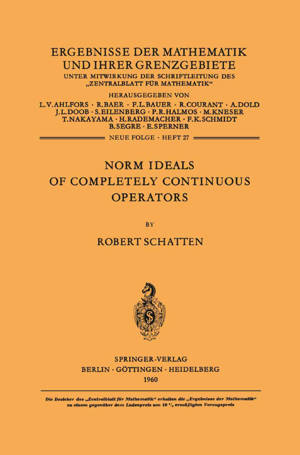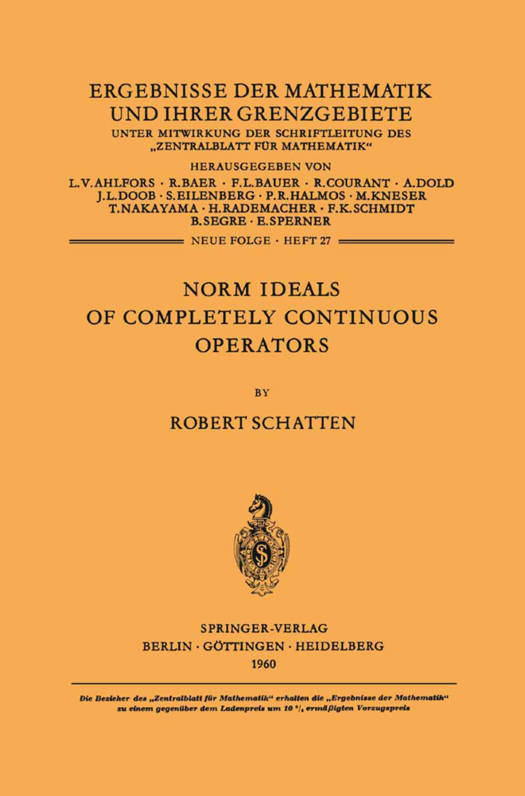
- Afhalen na 1 uur in een winkel met voorraad
- Gratis thuislevering in België vanaf € 30
- Ruim aanbod met 7 miljoen producten
- Afhalen na 1 uur in een winkel met voorraad
- Gratis thuislevering in België vanaf € 30
- Ruim aanbod met 7 miljoen producten
Zoeken
Omschrijving
Completely continuous operators on a Hilbert space or even on a Banach space have received considerable attention in the last fifty years. Their study was usually confined to special completely continuous operators or to the discovery of properties common to all of them (for instance, that every such operator admits a proper invariant subspace). On the other hand, interest in spaces of completely continuous operators is comparatively new. Some results of this type may be found implicit in the early work of E. SCHMIDT. Other results are "generally known" and cannot be found explicitly in print. One of the interesting and relatively new results states that modulo the language of BANACH (that is, up to equivalence) the space of all operators on a Hilbert space f> is the second conjugate of the space of all completely continuous operators on f>. The study of spaces of completely continuous operators on a perfectly general Banach space involves many difficulties. Some stem, for instance, from the unsolved problem whether a completely continuous operator on a perfectly general Banach space is always approximable in bound by operators of finite rank. The answer is affirmative in all the special Banach spaces considered. An affirmative answer to the above problem is the ultimate desideratum - it ould simplify the theory considerably. A negative answer, however, would be equally interesting (although for us not so useful), since it would settle negatively the open "basis problem".
Specificaties
Betrokkenen
- Auteur(s):
- Uitgeverij:
Inhoud
- Aantal bladzijden:
- 83
- Taal:
- Engels
- Reeks:
- Reeksnummer:
- nr. 27
Eigenschappen
- Productcode (EAN):
- 9783642876547
- Verschijningsdatum:
- 5/04/2012
- Uitvoering:
- Paperback
- Formaat:
- Trade paperback (VS)
- Afmetingen:
- 156 mm x 234 mm
- Gewicht:
- 145 g

Alleen bij Standaard Boekhandel
+ 167 punten op je klantenkaart van Standaard Boekhandel
Beoordelingen
We publiceren alleen reviews die voldoen aan de voorwaarden voor reviews. Bekijk onze voorwaarden voor reviews.








